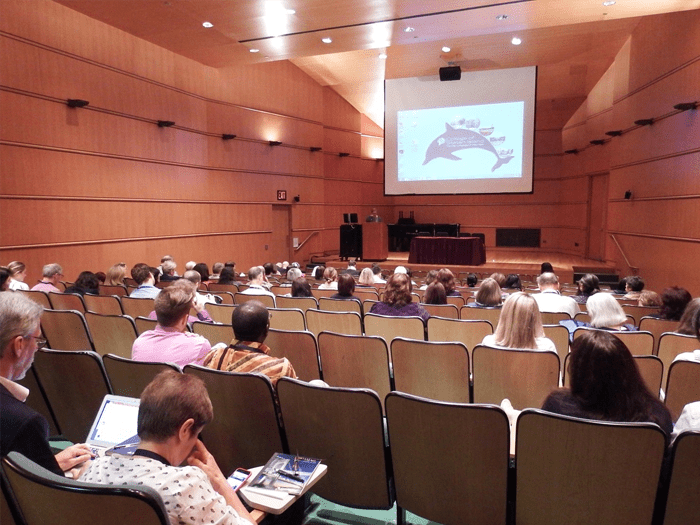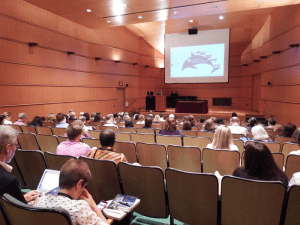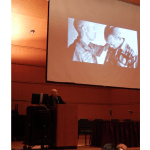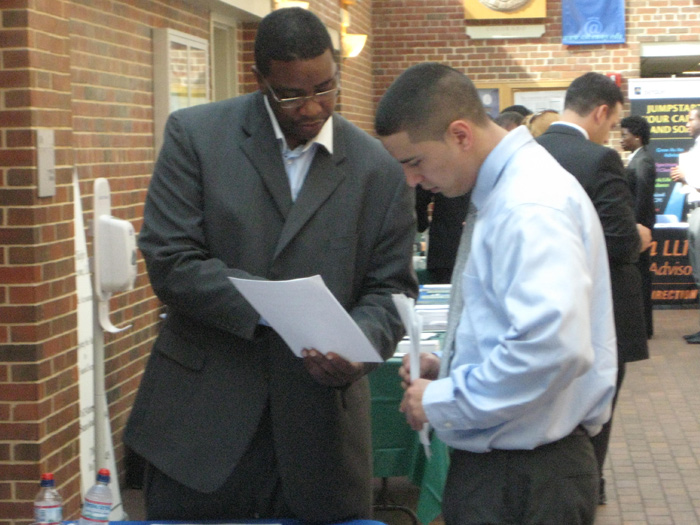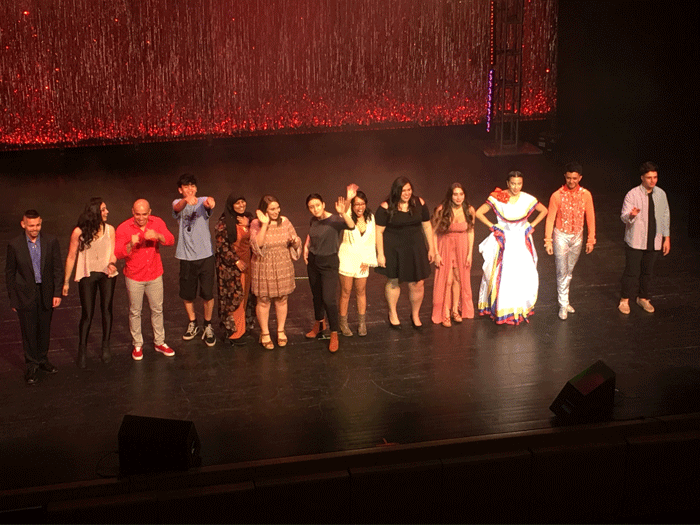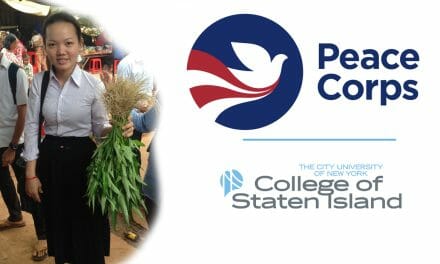The Tenth Biennial Conference of the International Academy for Intercultural Research (IAIR) filled the College of Staten Island’s campus with researchers looking to exchange their work and engage in further conversations addressing the conference theme, “Applying Research to Improve Intercultural Relations.”
IAIR is comprised of about 250 scholars from various disciplines including education, anthropology, management, communications, psychology, sociology, and policy science. The Academy’s main purpose is to provide understanding—disseminating to the public information regarding intercultural relations. This, in turn, encourages interchanges between people with an interest in intercultural relations.
This year’s five-day conference, which began on starting on June 25, highlighted presentations and abstracts surrounding immigration, intercultural identity, stereotypes, microaggressions, and more.
An opening ceremony featuring IAIR President and CSI Dean of Humanities and Social Sciences, Dr. Nan M. Sussman, and speaker Bitta Mostafi (Deputy Commissioner of Immigration, NYC) set the tone for the conference’s interactive environment.
“Globally, there are few issues that are more important to understand than intercultural relations. Never in human history have so many people regularly interacted with those from another country or religion or ethnic group. Tensions have been heightened in some cases but so has generosity and compassion. The work of the scholars of IAIR can better inform policy makers, elected officials, and educators,” remarked Dr. Sussman.
Keynote speakers Dr. Simon Adams (Executive Director of the Global Centre for the Responsibility to Protect) and Dr. David Webber (Assistant Professor of Homeland Security in the Wilder School of Government and Public Affairs at Virginia Commonwealth University) offered their insight on the conference’s relevance to today’s society.
Dr. Adams, who has worked extensively with government and civil society organizations in South Africa, Rwanda, Timor, and more (1994-2002), understands how beneficial it is to get individuals engaged in these worldly topics, as it can often be a unifying experience.
“I grew up as an immigrant in four countries and three continents…the biggest question you always fear is ‘where do you come from?’ because I don’t know where I come from, you don’t ever really belong anywhere when you have a hyphenated identity, or alternatively, you belong everywhere,” Dr. Adams stated, also noting that he understands how relevant IAIR’s message is to the CSI community.
“I think we’re living through a global crisis with 65.4 million people displaced at the moment…more than 21 million refugees, and I think we live in a world where many people are responding to that by turning away from the world…and I think it’s exactly these times where we have to focus on what makes us human,” he said.
Participants, such as doctoral student Ursula Mofitt, who is studying in Germany, took note of the thought-provoking dialogues carried on throughout the day. Whether they were speaking at a panel or attending one of the various social gatherings, like a Staten Island Yankees baseball game, participants were open to try something new, which further reaches at the importance of stepping outside of one’s comfort zone to understand things beyond their realm.
Stressing the understanding of other cultures and individuals without fear, Dr. Adams eloquently reminds us that, “we all live with multiple identities; it doesn’t mean you need to have an identity crisis.”

